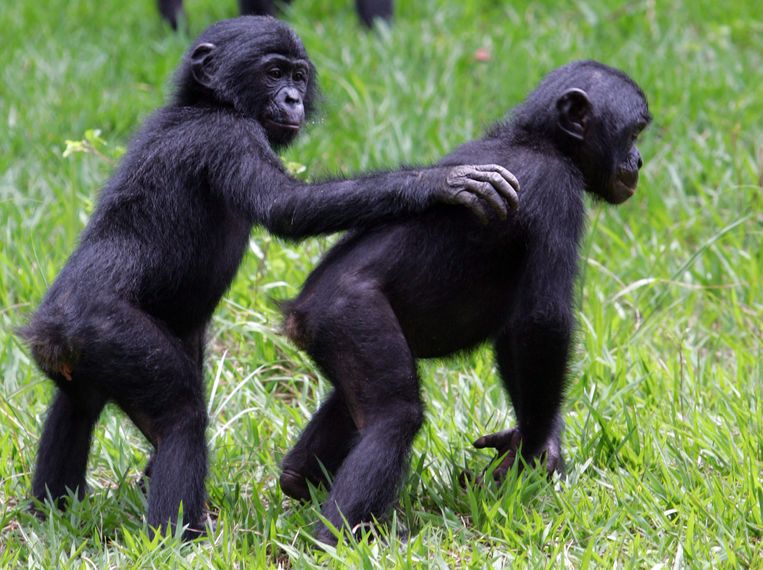Letting someone go first at the supermarket checkout, holding the door open for a stranger, or donating anonymously to a good cause: this altruism (working together without benefiting yourself or your loved ones) was long thought to be humane. Scientists have now discovered that bonobos in the wild also cooperate outside their circle of acquaintances.
Bonobos, along with chimpanzees, are our closest relatives in the animal kingdom. For this reason, scientists believe the findings say something about the origins of our prosocial behavior, which has always seemed to depend on learned cultural norms and values. Now it appears there may be a biological origin.
For two years, biologists have observed two populations of bonobos in the Kokolobori Reserve in the Democratic Republic of the Congo. Scientists from Harvard University, among others, have built a research base in the middle of the rainforest, where they observe and record the behavior of wild bonobos every day. They saw how great apes engage in three types of cooperation with other group members: fleaing, socializing and sharing food such as meat, honey and forest fruits.
According to biologists, what is most striking is that bonobos share their valuable food. The risks are high, especially when hard work is done for food. Furthermore, it is uncertain whether the receiving party will return the favor later.
Unlike chimpanzees, who argue mainly outside their group, bonobos have long been known to be friendly apes. Scientists explain their kindness with the so-called self-domestication hypothesis.
Effie van Berlo, a cognitive psychologist and great ape researcher at the University of Amsterdam: “If food is not scarce, you don’t have to fight for it. Bonobos evolved in an area where there was usually a lot of food. Aggressive behavior is therefore undesirable.”
Thus, bonobos could be peaceful, unlike their competitive relative, the chimpanzee. Some scientists apply the same theory to humans: The abundance of food will also shape our social behavior.
According to Van Berlo, the new results are published in the leading journal Sciences, an important nuance in the current theory. “Bonobos are often called hippie monkeys, who make friends with everyone. Now it turns out that they are making a distinction: whenever social monkeys from different groups choose each other to enter into a relationship with.
Van Berlo praises the research of American behavioral biologists. “Bonobos have always not been exposed to enough radiation, because people thought they were a type of chimpanzee rather than a separate animal species. The fact that this study can be done in the wild is absolutely fantastic.”

“Lifelong entrepreneur. Total writer. Internet ninja. Analyst. Friendly music enthusiast.”











More Stories
Monster Jam Showdown Launch Trailer
The European Digital Twin Ocean prototype reveals many possibilities
Instagram now lets you add a song to your account